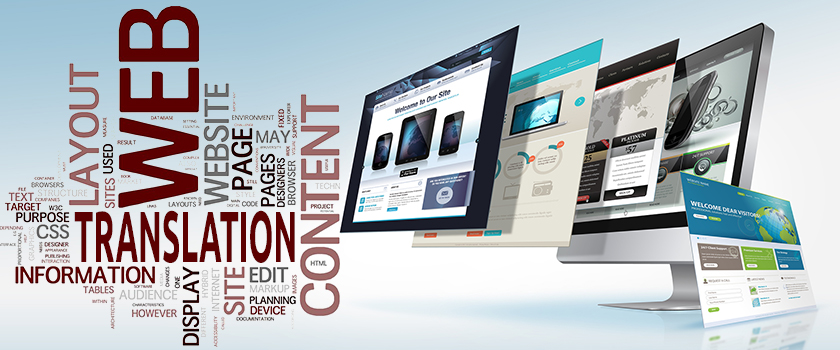2025 Offer Request a Quote Today and Grab a $50 Coupon for Free!
In this era of digitalization, global companies are going for automation. Automation can increase the efficiency and productivity of companies but at the same time, it is becoming a threat to human jobs. Adopting the technology is imperative for companies because if they don’t adapt to modern technology then they will lag in fierce competition.
Many global companies are going for automation and for this purpose they are laying off their employees. There is nothing to worry about in employment because to operate machinery, you still need human assistance.
If we talk about the translation industry, artificial intelligence is replacing translators but for localization and transcreation, translation industries cannot remove human translators completely.
The advancement made in the field of AI has changed many ways of doing things that we used to do before. The industry which is immensely affected by artificial intelligence is the translation industry.
With the help of different gadgets and software, translation into multiple languages has become very easy. According to the rough estimate, the AI software growth rate was 54% in 2021. In addition to it, the scope of technology is so fast that its market size will expect to reach $22.6 billion by 2025.
Due to globalization, there is a great demand for people that need to travel from one country to another for different purposes. It can be a study, job purpose, or exploring a new land. Whenever any one of us visits a new land, we have to witness a new language and culture.
Here, you are in dire need of translation services. In a foreign land, if you come to know that there is a robot that will provide you with translation services. You will be astonished.
Technology is impacting every field of life and the translation industry is not an exemption. Humanoid robots are used with two legs and arms to do human work. Such robots are designed to interact with the environment and do the volume of work in seconds.
According to the study conducted by the Oxford University of Engineering Science and Oxford Martin School, 47% of the jobs in the US will be taken up with robots soon. The research further elaborates that jobs related to logistics, transportation, office, and administration will adopt automation.
This does not mean that the labor class will lose jobs. It also depends upon how people will perceive technology. The people living in developing countries are reluctant to adopt technology as compared to people living in developed countries.
The renowned physicist Stephen Hawking warned that the rise of artificial intelligence would bring destruction to the middle classes. However, the translation industry is not prey to it. Machine translation is used in the translation of a large volume of data but still, human evaluation is required to ensure its authenticity.
Artificial intelligence can change the dynamics of any industry. The common notion is that it will result in the dismissal of jobs. However, history shows that technology not only increases efficiency but it also creates tech-savvy jobs.
In the 18th century, when the Luddites took the position of textile workers, it was a great misconception that machines would take over people’s livelihood. On the contrary, it created more jobs for weavers. The factories were able to produce more material at low prices.
Due to this, the demand for people increased and the jobs of people doubled in 70 years. The same issue was raised when banks installed automated teller machines in the 1980s. It resulted in the layoff of many employees but at the same time, banks are forced to open new branches.
Due to more banks, more jobs are created. The ATM can work on its own but to fill the machine with money, human intervention is still required. In developing countries, security guards are confined to sitting outside the ATMs for security purposes.
In short, automation in the modern age shows that technology will create more jobs instead of increasing unemployment. According to Dr. Carl Benedikt Frey of Oxford university, if humans need to win the race over machines, then they need to develop social and creative skills.
Communication is an integral part of human lives. From business to diplomacy, the growth in different facets of life depends upon effective communication. Globalization has given it a great boost through the emergence of technologies like API not only in business but also in legal issues.
There are around 7,189 languages spoken around the world. The importance of large data has raised the requirement of publishers and translation services. The important thing to note is that the technology is unable to evaluate the cultural and regional intricacies.
Therefore, the advent of artificial intelligence and machine learning is not equal to human translations.
One of the foremost benefits of advanced AI software is accommodating the large set of content databases that they were unable to process efficiently when there was no advanced technology.
According to one survey, the use of Google has drastically increased the translation of 300 trillion words as compared to 200 billion words that were translated by the professional translation industry in 2019.
The accuracy of translation is still ambiguous but the improvement has been significant. This thing has given the great privilege to businesses that were unable to afford translation services in the past.
On the other hand, the privacy and customization of data through generic engines have also raised the question of fulfilling the requirement of specific needs of commercial and industrial settings.
Some people are of the view that only big companies can access and mine big data to improve machine translation systems. The improvement required for the development of machine learning and translation is often open-source.
Therefore, it helps a variety of companies of different sizes to customize the content according to their requirements. For this reason, many companies need to build pre and post-processes and try to build their systems.
The large number of languages that are used globally has opened an opportunity for businesses to specialize in language translations for different industries, so every person can translate their legal or medical documents more accurately.
For this purpose, they hire service providers that are specialized in their fields. However, even in these cases, the data gathered for machine translation requires the collaboration of legal professionals that can abide by all laws and regulations that are required in the translation of the content from one language to another.
You must be wondering whether professional translators will be extinct soon. This is a very common question that is asked several times because of the impact of AI and human extinction through automation.
Many tech-savvy countries are taking humans in the loop to check and review the accuracy of machine output. These translators make changes according to cultural and regional nuances and give their feedback to improve the quality of the translation software.
Global companies hire professional language service providers to translate a document from scratch through efficient processes. These translation companies run files on cloud machine translation software and then give translated files to translators for review. In this way, the work is done with rapid speed without compromising on quality.
One part of globalization is that it is increasing the demand for translation services. The other main factor that has increased the demand for machine translation is the lethal pandemic Covid-19 which has increased the demand for machine translations exponentially due to less human interaction.
These circumstances have forced many companies to rely on AI tools to mitigate communication barriers. The increased demand for machine translation has led to the development of machine technology.
Over the last five years, machine technology evolved from rule-based translation models to neural machine translation. This thing helps them to copy the human translation process. More importance is given to human intervention because human intervention can increase the accuracy and efficiency of machine translation software.
The old way of document translation is translating lines one by one. This method has become outdated now but with few exceptions. The twenty-first century demands immediate language deliveries of huge data.
Artificial intelligence has made it possible for companies of all sizes that are competing on publishing content before their competitors. They focus on specific language and their cases. Therefore, it has provided opportunities for innovators and entrepreneurs that can avail specialized solutions for the global translation demands.
With the invention of new technologies, we are finding many new roles for translators in the translation industry. This is because machine translation is more technical and new human services are required for post-editing machine translation results.
This requires proficient translators to evaluate high-volume machine translation results. In this way, the language service providers can provide quick translation services at affordable rates. A low rate of translation will create more jobs for proofreaders in the translation agencies.
Do you know that in the last 20 years, the field that has taken great leverage from machine translation is the legal sector? Artificial intelligence has shortened the time for paralegals to build different discovery cases. Machine translation has come up with a new e-discovery domain.
In this regard, computers helped them in filtering thousands of documents, transcripts, and emails that are relevant to a legal dispute. The discovery process is executed by humans and it has tremendously reduced the numbers. In addition to it, computers are an authentic source of segregating legal documents. Machine translation has produced many positive results in the legal sector.
Translators’ role is not merely restricted to linguists only. They also need to acquire knowledge of different fields like medical, legal, and marketing. Moreover, due to digitalization, computer skills are also mandatory.
The translation field is a sector that is globally recognized. As more and more companies are expanding their operations in foreign countries, the demand for translation is increasing with time. The important thing to note is that for translation services, you don’t need a physical presence in foreign markets.
With the help of the internet, businesses can penetrate foreign countries without any physical presence. It is projected that the majority of online transactions will be done on the cloud. For this reason, companies will demand translation services within the required turnaround time and affordable rates.
As machine translation takes less time in completing the translation project. Therefore, global translation companies can provide services that are according to customers’ demands. People opt to buy products and services that are in their native language.
Thus, global companies can not be able to flourish without translation services. The translation companies have no option left to embrace translation technology and create jobs for people that are proficient in different fields.
Marketing is the most demanded field in the translation industry so online content and post-editing will be required more. Here the problem rises when content is not relevant to other target markets. In such cases, new content is needed for new target markets.
Video editing is another important skill to enhance your business visibility in the digital world. As more and more people can access the internet from their mobiles, the requirement for visual media content in customers' native language will remain high.
The impact of AI on the translation industry may seem to you a threat for translators but if the translation industries adopt the business models according to the requirements of international markets, then they can turn threats into opportunities. AI with human interventions can provide the world with effective communication without any errors.

Mars Translation provides high quality and professional Certified French Translation Services all over the world. We have a team of
Read more
Mars Translation provides one of a kind professional Chinese Document translation services all over the world. All of MT’s translators
Read more
MarsTranslation provides one of a kind Chinese Legal Translation Services. We have a team of native Chinese linguist who specialize
Read more
Chinese Certified Translation services is one of the most asked for service at MarsTranslation. We believe in providing quality services
Read more
Mars Translation is one of the fastest growing companies in the translation industry. This is the reason why we pay
Read more
MarsTranslation has a huge team of website translation specialists in more than 230 languages. Our translators are constantly supported by
Read more
Mars Translation provides high quality and professional Certified Spanish Translation Services all over the world. We have a team of
Read more
Mars Translation has hired some of the best and most experienced Danish translators to work on your translation projects. We
Read more
Medical terminologies are tough to understand and not easy to comprehend by everyone. Although these terminologies are difficult to understand
Read more

